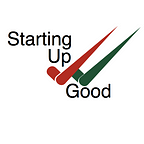Skoll World Forum- Has Impact Investing been Inflated?
Welcome to our new series: What to Read this Week (also including ‘What to Watch’ and ‘What to Listen to’ this week). We know you’re busy, and it can be tough to keep up with the many news stories happening around impact investment. There are already great resources available for daily and weekly updates from Impact Alpha, Cathy Clark’s On Impact, and Brian Walsh’s All Things Impact (just to name a few).
Rather than adding to that competent list, we have decided to focus on one topic each week for a deeper-dive. We may highlight a hot-off-the-presses report, video, or podcast, or refresh your memory of a tried-and-true resource.
This week, we focus on a panel held at the most recent Skoll World Forum entitled “Has Impact Investing Been Inflated?”, which examined whether or not the promise of impact investing has been oversold.
Billed as an “Oxford-style debate”, the session began with an audience poll, showing attendees overwhelming believed that the promise of impact investing has been over-inflated. It was then the goal of the panelists to either maintain or sway the audience’s beliefs by presenting their case. [Note: the phrasing of the question was immediately challenged. The moderator explained that the session would stick to the original question for simplicity, and that the panelists would be taking slightly more extreme positions in order to make the conversation more interesting and fun for the audience.]
Taking the side of “over-hyped and under-delivered” were panelists Chris West, Partner at Sumerian Partners and former Director of the Shell Foundation, and Mara Bolis, Senior Advisor in the Private Sector Department at Oxfam America.
Chris kicked off the debate with a lighthearted Dickensian description of the ghosts of impact investing past, present and future. The basis of his and Mara’s case is a recently released Oxfam report, arguing that the impact investing sector risks being discredited due to rising, unrealistic expectations about financial returns.
The crux of their statements: we need to make sure impact investing remains focused on social entrepreneurs and small enterprises — the people on the ground who are reducing poverty in the most under-served markets. Is investment money getting to them? Or is it being diverted to new, large entrants to impact investing like The Rise Fund or Goldman Sachs?
Mara, who set up Oxfam’s first impact investing initiative, led with the example of Shekina Enterprises, a Rwandan cassava leaf-drying company in which Oxfam invests. Her point: is cassava leaf farming in Rwanda what you think about when you hear the term impact investing? Mara also warned that not every investment in wind farms or business activity in the Global South are, in fact, poverty reducing and, therefore, impact investments. There needs to be intentionality of impact to ensure the priority of impact results.
Even with warnings about unrealistic expectations of financial returns and gaps between supply (from social entrepreneurs) and demand (from investors), Mara and Chris addressed the opportunity to change behavior now with patient capital and more independent research to improve the future outcomes of impact investing.
Tackling the other side of the debate were Cathy Clark, Director of CASE i3, Center for the Advancement of Social Entrepreneurship at Duke University, and Lisa Kleissner, Philanthropist, Impact Investor and Co-Founder of Toniic.
In her opening statements, Cathy talked about the real opportunity to change the way the world invests given the growing interest — especially among Millennials and Baby Boomers —in sustainable and impact investing. She displayed the “Case Smart Impact Butterfly” chart to show how the sector is developing new kinds of capital to address supply and demand issues between investors and entrepreneurs.
Lisa addressed the portfolio lens approach that she and other impact investors utilize to invest across a broad spectrum of risk and return. While reiterating that impact investing is a work in progress, she described the importance of transparency and collaboration — taking an “and” approach.
Lisa referenced Toniic’s recent report that publicized the aggregated portfolios of more than 50 investors who are successfully targeting and achieving both impact and financial returns across the same asset classes available to traditional investors.
Julia Sze, Managing Director of Impact Investing at Arabella Advisors, moderated the session and contributed to the conversation with her insights from many years of pioneering impact investing. Her thoughts about Bono’s description of early impact investments as “ a lot of bad deals done by good people” added interesting background color to the history of the movement and is worth a look (skip to minute 44).
The speakers answered a handful of questions from Julia and the audience, covering timely topics such as how to “democratize investing” given the inherently unequal power balance between entrepreneurs and investors.
After a lively discussion,[SPOILER ALERT] Cathy and Lisa were able to sway more of the audience to their point of view, even though there was still some debate as to whether the initial question was phrased appropriately. Ultimately, the session highlighted the opportunity of impact investing while teasing out other important themes such as maintaining authenticity and the need for effective measurement approaches and tools.
If you have a spare hour, this entertaining and informative session is well worth watching.
